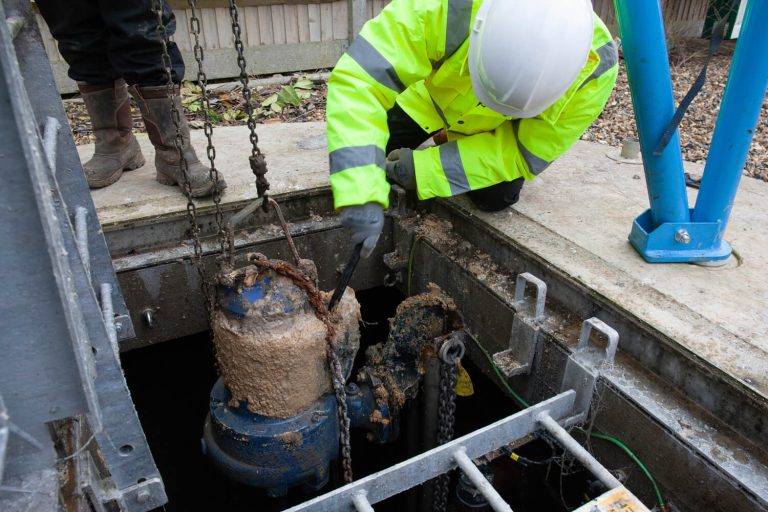When Can You Sue a St. Lucie Landlord for Unsafe Property Conditions?

Filename: signing
Alt-text: a person being directed by another person on where to sign
Image Caption: Unsafe property conditions can increase the risk of tenant injuries and raise legal questions about landlord responsibility.
Tenants in St. Lucie neighborhoods like Tradition or River Park often rely on their landlords to maintain safe and livable housing conditions. Unfortunately, not all landlords meet their obligations. When dangerous property conditions lead to injuries, Florida law gives tenants the right to hold landlords accountable. A personal injury lawyer serving St. Lucie can help assess the situation and take legal action when necessary.
Legal Duty of Landlords in Florida
Florida landlords are legally required to maintain rental properties in a safe and habitable condition. This includes structural safety, adequate lighting, working locks, mold prevention, functioning smoke detectors, pest control, and consistent upkeep of electrical and plumbing systems. Failing to do so may violate state statutes and create legal liability, especially if a tenant is harmed.
This responsibility extends to both common areas and the interior of rental units. For example, a loose stair railing in a shared hallway or a leaking ceiling in a bedroom are both conditions that fall under a landlord’s duty to repair.
Types of Unsafe Conditions That Can Lead to Liability
Landlords can be sued when injuries are caused by conditions that should have been fixed within a reasonable time after being reported. Common hazardous conditions include:
- Broken stairs or handrails leading to falls
- Water leaks resulting in mold or structural rot
- Exposed wiring or faulty electrical outlets
- Infestations that contribute to health problems
- Lack of security features, such as deadbolts or proper lighting in hallways
- Collapsed ceilings or sagging floors
- Poorly maintained HVAC systems that cause carbon monoxide exposure
If a landlord was informed of the issue and failed to act—or if the problem was so obvious that they should have known—legal liability may follow.
Filename: injury
Alt-text: close-up of a person’s hand as they put on a bandage
Image Caption: Legal action may be possible if a landlord fails to correct safety hazards in a residential rental unit.
What Tenants Should Do After an Injury
After being injured due to unsafe property conditions, tenants should take certain actions immediately to protect their rights:
- Get medical attention promptly, both for health reasons and to document the injury.
- Photograph the hazard that caused the injury. This can include damaged floors, leaking pipes, or inadequate lighting.
- Report the injury and hazard in writing to the landlord. Keeping a paper trail of complaints and correspondence is essential.
- Preserve evidence, including doctors’ notes, accident-related receipts, and any prior communications about the issue.
- Avoid signing agreements or accepting offers from the landlord or their insurance company without legal review.
Seeking advice from an injury lawyer serving St. Lucie ensures that critical deadlines are met and that the claim includes all recoverable damages.
Proving the Landlord’s Negligence
To succeed in a lawsuit, the injured tenant must show that:
- The landlord had a duty to maintain the property,
- The landlord knew or should have known about the unsafe condition,
- The landlord failed to repair or address the hazard,
- The unsafe condition directly caused the injury.
Witness statements, maintenance records, and photos of the conditions can help establish negligence. An experienced legal team can investigate the case and work to prove that the landlord failed in their legal responsibilities.
Can Tenants Still Sue if They Didn’t Report the Issue?
In some situations, tenants may not have reported the hazard because it was already clearly visible or known to the landlord. For example, a rotting stair tread or a moldy bathroom wall may be something the landlord should have addressed during routine inspections.
In these cases, a personal injury lawyer serving St. Lucie may still be able to argue that the landlord had constructive knowledge.
Compensation Available in Tenant Injury Claims
Injury claims against landlords may include compensation for:
- Medical bills (past and future)
- Lost wages or reduced earning capacity
- Pain and emotional distress
- Costs for alternative housing if the unit becomes uninhabitable
The severity of the injury, the duration of medical treatment, and any lasting impairments all influence the value of a claim. A qualified personal injury lawyer serving St. Lucie can help calculate damages accurately and advocate for fair compensation.
Filename: legal-sign
Alt-text: a lawyer standing with a client, getting them to sign documents placed on a wooden table
Image Caption: When rental properties aren’t properly maintained, tenants may have the right to seek compensation after an injury.
Get Legal Support
Tenants deserve safe, well-maintained homes. When a landlord’s negligence leads to injury, legal action becomes an important tool for recovery and accountability. Florida law supports tenant rights, but building a strong case requires timely evidence, medical documentation, and a clear demonstration of fault.
If a landlord failed to repair unsafe conditions and that failure led to harm, help is available. Speaking with an injury lawyer serving St. Lucie can be the first step toward holding negligent property owners responsible. Reach out to a personal injury lawyer serving St. Lucie at Frankl Kominsky Injury Lawyers for a free consultation and find out what legal steps may be available.
Contact them today.
About the Author
Dana Ellis is a Florida-based legal writer who specializes in tenant rights and injury claims. With a background in public policy and housing advocacy, Dana focuses on simplifying legal topics for everyday readers. Her work has been published in legal blogs and community news sites across Florida. Outside of writing, she enjoys volunteering with local housing initiatives and helping renters understand their rights.




